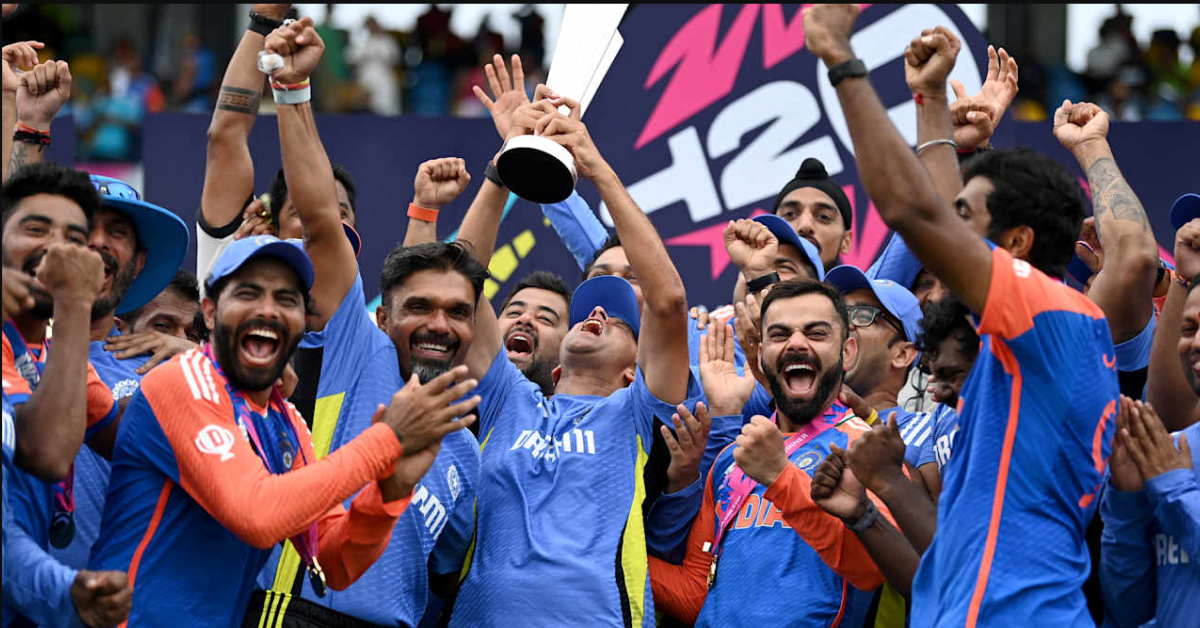Tournament Dynamics and Challenges:
Hosted for the first time in the USA, this T20 World Cup marked a historic shift in venue, bringing the excitement of ICC tournaments to new shores and introducing cricket to a wider audience. The use of drop-in pitches and imported soil from Adelaide Stadium in Australia highlighted the innovative approach to hosting cricket in non-traditional cricketing nations.
The tournament's format tested the mettle of each team, with new entrants like Canada, Uganda, and the USA (as co-hosts) adding a refreshing diversity to the competition. West Indies' formidable innings of 218/5 against Afghanistan set a new benchmark, showcasing the explosive batting potential on pitches that challenged even the most seasoned players.
Star Performances and Emerging Talents:
Rahmanullah Gurbaz of Afghanistan emerged as the leading run-scorer with 281 runs, displaying remarkable consistency with an average of 35.12 and a strike rate of 124.33. His innings were pivotal in Afghanistan's journey to the semi-finals, underscoring his prowess as a top-order batsman.
Nicholas Pooran's blistering 98 against Afghanistan stood out as the highest individual score of the tournament, demonstrating the West Indian's ability to dominate bowling attacks. Meanwhile, the bowling charts were led by Arshdeep Singh of India and Fazalhaq Farooqi of Afghanistan, both claiming 17 wickets each. Farooqi's exceptional 5/9 against Uganda highlighted Afghanistan's depth in bowling talent.
Final Showdown and Historical Milestones:
The final between India and South Africa was a fitting culmination of the tournament's intensity and drama. India's total of 177 runs in the final, anchored by Virat Kohli's composed 76 off 59 balls, set a new standard for T20 World Cup finals. Axar Patel's aggressive 47 and Shivam Dube's quickfire 27 added crucial runs, putting pressure on the South African bowlers.
In response, South Africa, led by captain Aiden Markram's spirited leadership and batting contributions, fought valiantly but fell short at 169 runs, succumbing to India's disciplined bowling attack. Jasprit Bumrah's economical spell of 2 wickets for 18 runs, supported by Arshdeep Singh and Hardik Pandya, ensured India's victory, marking their first unbeaten run in an ICC T20 tournament.
Retirements and Farewells:
The tournament also marked the end of an era for Indian cricket, with Virat Kohli, Rohit Sharma, and Ravindra Jadeja bidding farewell to T20 internationals after illustrious careers. Coach Rahul Dravid, whose coaching tenure concluded with this victory, finally secured an ICC trophy, a fitting end to his coaching journey.
Legacy and Recognition:
The Board of Control for Cricket in India (BCCI) acknowledged India's achievement by announcing a reward of Rs. 125 crore for the team, celebrating their remarkable journey and contribution to cricket history. This victory not only reaffirmed India's dominance in T20 cricket but also set a benchmark for future tournaments in terms of performance, strategy, and team spirit.
As the cricketing world reflects on the ICC Men's T20 World Cup 2024, it will be remembered as a landmark event that transcended boundaries, celebrated diversity, and showcased the best of cricketing talent on a global stage. With new nations participating and established players bidding farewell, the tournament encapsulated the essence of sportsmanship, resilience, and the thrill of competitive cricket.
keywords: icc mens t20 world cup 2024 all teams, icc mens t20 wc winner list, icc mens t20 wc team list, virat kohli last t20 game, virat kohli last score in t20 wc, rohit sharma records in t20 wc, rohit sharma total run in t20 wc, icc t20 wc all records, number of icc trophy for india, icc t20 wc 2024 scorecard, ind vs sa t20 wc 2024 scorecard

